What were the first measures other countries relaxed from coronavirus lockdown?
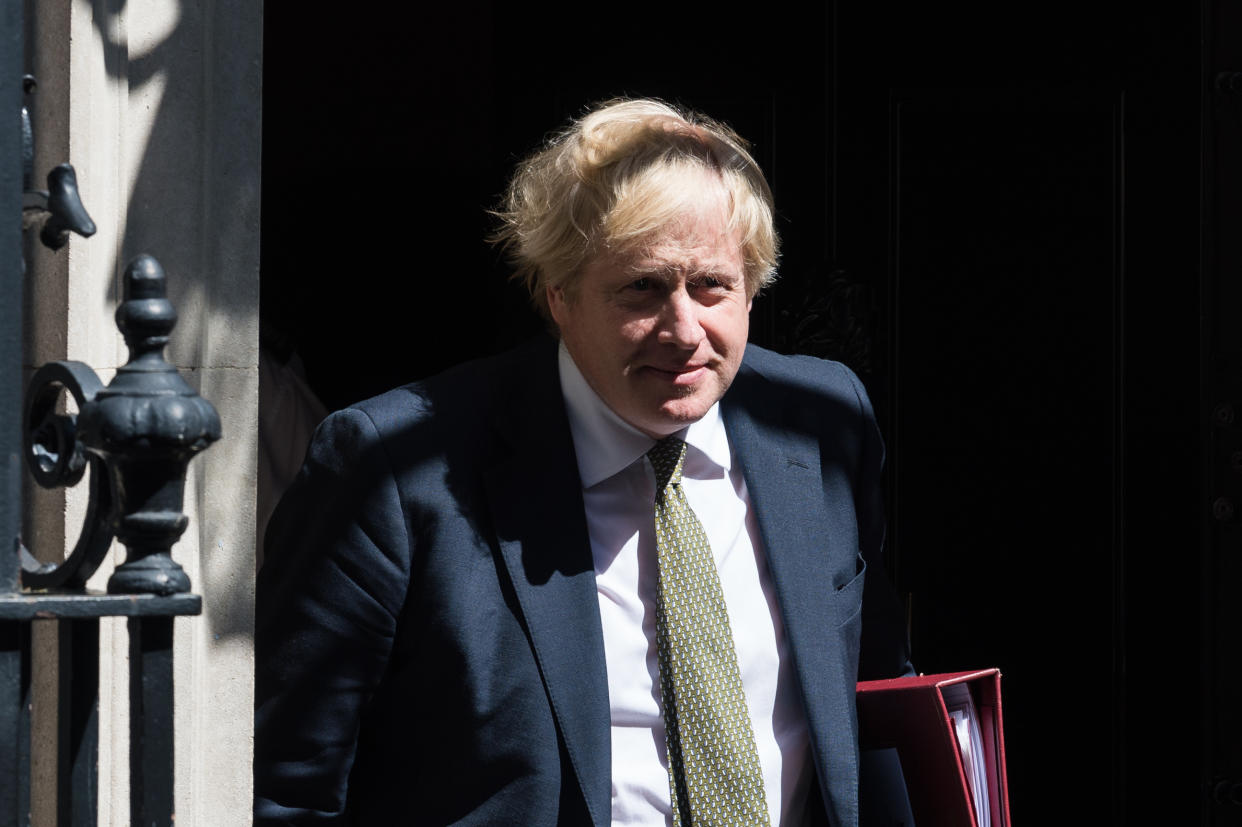
Lockdown measures in the UK look set to be eased next week with Boris Johnson due to outline how the country moves on from the restrictions in an address to the nation on Sunday.
The UK is expected to follow in the footsteps of Germany, Italy and Spain, which have already started to relax some restrictions and are monitoring the impact on how quickly the coronavirus spreads.
All countries have so far adopted a phased approach, reopening different businesses and lifting rules in increments spaced out over the the rest of the year.
The UK government has said it will be monitoring and learning from other countries' approach. Here, Yahoo News UK looks at what they have done and what impact they have had so far.
Germany
Germany introduced restrictions in March and began easing its lockdown on 27 April.
Small shops were allowed to reopen first, while playgrounds, churches, museums, exhibitions and zoos have also been permitted to reopen.
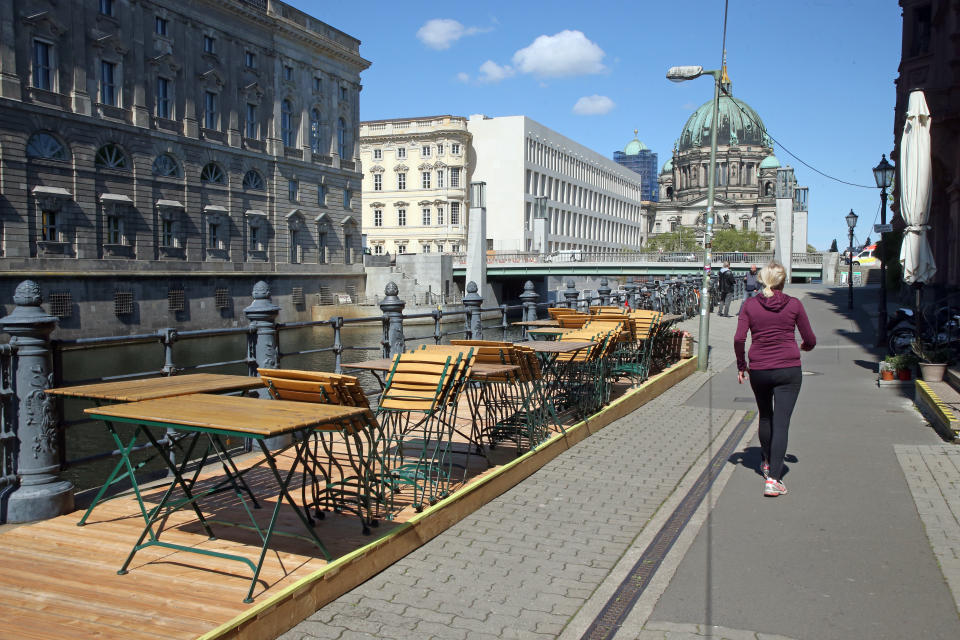
The country’s states each have powers to decide when restaurants, pubs, clubs and gyms reopen, but large gatherings like festivals are prohibited until 31 August.
Worries those measures had led to the coronavirus spreading faster again were quickly quashed by scientists.
In the next wave of easing up, people from two households will be able to meet, schools will start bringing pupils back in and further shops are set to reopen.
The Bundesliga football league will be allowed to restart later in May, too.
All of these relaxed restrictions will take place under conditions that people keep a distance of 1.5 metres (five feet) from each other and wear face masks on public transport.
An emergency brake has also been established, allowing for some restrictions to be brought back in place if an area records more than 50 new infections per 100,000 people within a week.
Latest coronavirus news, updates and advice
Live: Follow all the latest updates from the UK and around the world
Fact-checker: The number of COVID-19 cases in your local area
6 charts and maps that explain how coronavirus is spreading
“We are at a point where our goal of slowing the spread of the virus has been achieved and we have been able to protect our health system... so it has been possible to discuss and agree on further easing measures,” German chancellor Angela Merkel said.
The country has recorded 168,000 cases and more than 7,000 deaths, according to Johns Hopkins University.
Italy
Employees at constructions sites and manufacturing jobs have been allowed to go back to work.
This week, parks and gardens have also reopened, with funerals and visits to relatives who live in the same region also permitted.
Shops and museums are now set to reopen from 18 May, with professional sports teams allowed to resume training from that day too.
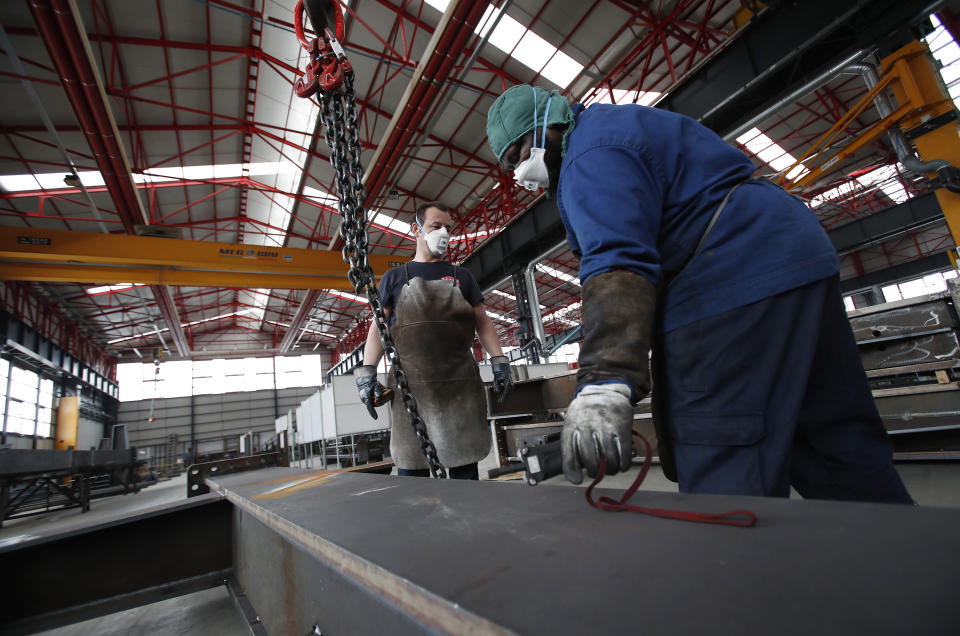
Restaurants, cafes and salons will restart trading from 1 June.
The UK overtook Italy’s coronavirus death toll this week.
The Mediterranean state once served as Europe’s epicentre in the global pandemic and has reported more than 214,000 cases and 29,000 deaths.
Spain
Spain has reopened businesses including hairdressers and florists, and allowed its people to leave home for reasons other than essential trips.
For seven weeks, only adults were allowed to leave home, and then only to shop for food, medicine and essential goods, and walk dogs close to where they lived.
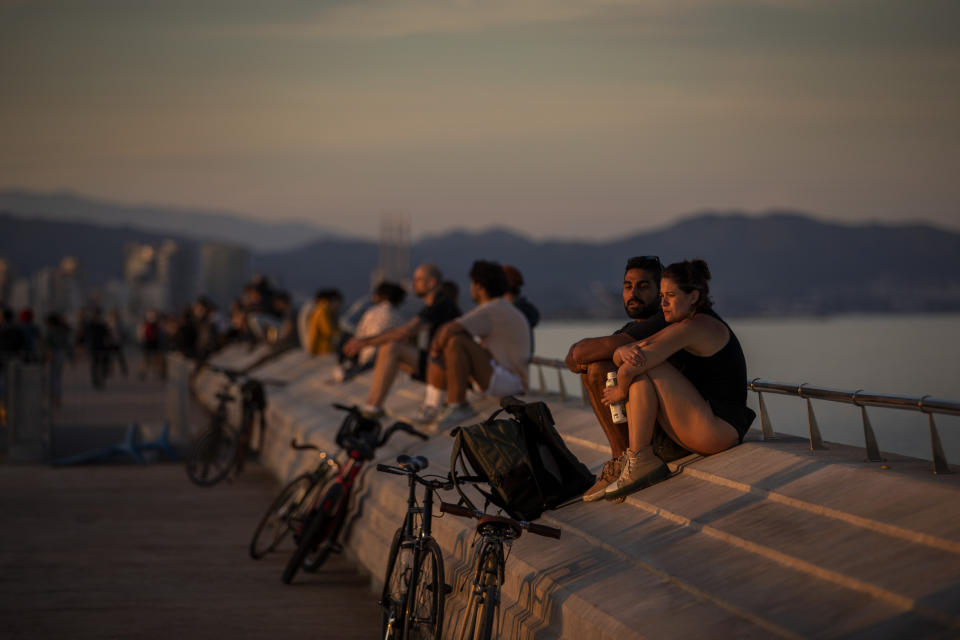
The rules were relaxed on Saturday and saw Spaniards enjoy their time outdoors by running, walking and cycling.
A field hospital built by the military in Madrid has shut, as has a mortuary set up in a shopping centre ice rink.
The government has distributed millions of face masks to try and stop the virus from spreading quickly again.
Age groups and activities are subject to allotted time slots, and social distancing measures remain in place.
The state of emergency has also been extended to 24 May, with the country recording 220,000 cases – the world’s second highest official total, behind the US – and 25,000 deaths.
Going forward, different areas of Spain are expected to loosen rules at different speeds, with provinces that could handle a resurgence of the virus moving quicker.
Austria
The first phase of Austria’s reopening has gone “excellently”, the country’s health minister has said.
The Alpine state began reopening from lockdown on 14 April, when it allowed DIY stores and garden centres to resume trading.
Shops smaller than 400 square metres have also been allowed to welcome customers again.
“We can now examine and assess the effects of April 14 and the following days very, very well and they show that we managed this first opening step excellently,” health minister Rudolf Anschober said.
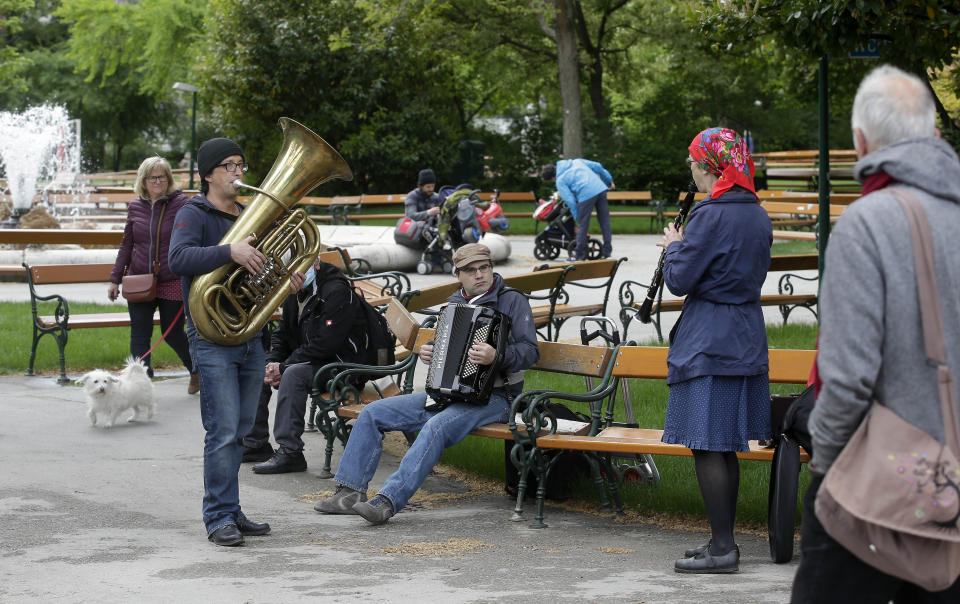
"We have no indication of a noticeable increase in individual areas.
“The situation is very, very constant, very, very stable and that is a really very, very positive, good situation.”
This week, hairdressers and shops larger than 400 square metres were allowed to reopen, with restaurants, bars, hotels and museums also set to restart business later in May.
Austria has confirmed 15,000 cases and 600 deaths.
Denmark
Day care centres have reopened and pupils aged six to 12 have gone back to school, while hairdressers and small businesses were permitted to open their doors again from 20 April.
The government has also proposed to reopen shopping centres, cafes and restaurants, and allow older pupils to go back to school.
“All parties want to open everything up, no one wants to keep parts of Denmark closed even one day more than necessary, but everyone also acknowledges that we should do the most responsible thing for health,” prime minister Mette Frederiksen said.
Her country has reported 10,000 cases and 500 deaths.

 Yahoo News
Yahoo News 

